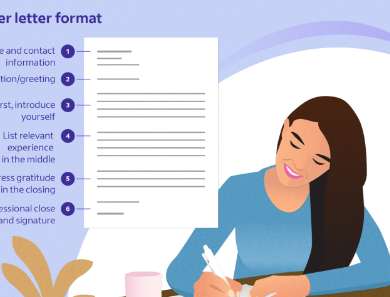Choose All Items That Represent Characteristics of a Cover Letter

When crafting a cover letter, it is imperative to consider various elements that embody professionalism and effectiveness. Characteristics such as clarity, personalization, conciseness, tailoring, and professionalism play pivotal roles in setting a strong foundation for a successful application. Each element contributes to the overall impact of the cover letter, but there is a crucial aspect that can elevate it further. By understanding and incorporating this additional element, the cover letter can truly stand out and make a lasting impression on the recipient.
Clarity
Maintaining clarity in a cover letter is essential to effectively communicate your qualifications and intentions to potential employers. Clear communication and effective messaging are crucial in conveying your value proposition.
Direct language and concise writing enhance readability and understanding. Avoiding ambiguity and unnecessary details ensures that your message is comprehensible and impactful.
Clarity in a cover letter sets the tone for a positive first impression and demonstrates professionalism and attention to detail.
Personalization
Personalization in a cover letter is crucial for making a strong first impression. Tailoring the content to match the specific job requirements shows dedication and interest in the position.
Addressing the recipient by name and customizing the letter for the company can greatly increase the chances of standing out among other applicants.
Tailored Content
Crafting a cover letter with tailored content is essential for demonstrating to potential employers that you have taken the time to personalize your application to their specific needs and requirements.
Including specific examples of your relevant experience that directly relate to the job description shows employers that you have a genuine interest in the position and understand what they are looking for in a candidate.
Addressed to Recipient
When addressing a cover letter to a specific recipient, it is crucial to research and accurately identify the individual responsible for reviewing applications within the organization.
Using a formal tone and proper formatting, ensure the recipient’s name, job title, and contact information are correctly included.
Personalizing the cover letter in this manner demonstrates professionalism and attention to detail, increasing the chances of making a positive impression.
Customized for Job
Tailoring a cover letter to align with the specific requirements and qualifications outlined in the job description is essential for showcasing a strong fit for the position.
Ensuring format consistency and visual appeal enhances readability.
Conducting thorough company research and demonstrating industry knowledge in the cover letter not only shows genuine interest but also indicates a proactive approach to understanding the organization’s needs.
Conciseness
Emphasizing brevity in a cover letter is essential to maintain the reader’s interest and convey information effectively. Adhering to length requirements and formatting guidelines ensures a concise and organized document.
The writing style should be professional, with a tone of voice that is confident and respectful. By keeping the content succinct and to the point, the cover letter becomes more impactful and engaging for the reader.
Tailoring
When crafting a cover letter, tailoring is crucial for success. Customized content and a personalized approach are key components of a well-tailored cover letter.
Customized Content
Effective cover letters demonstrate their value by addressing the specific needs and requirements of the employer or organization.
Customized content involves tailoring the cover letter to include specific details that showcase how your unique approach aligns with the company’s goals.
Personalized Approach
Tailoring a cover letter to reflect your unique qualifications and align them with the specific requirements of the job enhances the overall impact of your application.
By incorporating an individualized tone and specific details, you create a unique introduction that speaks directly to the hiring manager.
This tailored message shows that you have taken the time to understand the role and how your skills make you the perfect fit.
Professionalism
Maintaining a high level of professionalism in a cover letter is essential to leaving a positive impression on potential employers. Professional etiquette and business formality should be upheld throughout the document.
This includes addressing the recipient formally, avoiding slang or overly casual language, and presenting oneself in a respectful and professional manner.
Demonstrating professionalism in a cover letter sets the tone for the employer’s perception of the applicant.
Achievements
Highlighting one’s accomplishments and successes is a key aspect of crafting a compelling cover letter, showcasing the value and experience the candidate brings to the table.
Including career milestones, professional accomplishments, notable successes, and personal achievements can provide concrete examples of how your skills have positively impacted previous roles.
These achievements offer potential employers a glimpse into the contributions you can make to their organization, making your cover letter stand out.
Customization
Personalizing your cover letter to align with the specific requirements and values of the prospective employer is essential for making a strong impression and demonstrating your genuine interest in the position.
When customizing your cover letter, consider incorporating design elements such as a professional font and layout that are easy to read.
Formatting tips include using a clear structure with concise paragraphs and bullet points to highlight key achievements and skills.
Read more: Clipart:T4h-X66pih4= Happy Thanksgiving:Xiatzgqeckc= Turkey
Call-to-Action
In crafting a compelling cover letter, it is important to conclude with a strong call-to-action that prompts the reader to take the next step in considering your application.
Effective engagement strategies include inviting the reader to schedule an interview, expressing enthusiasm about the opportunity, and outlining your availability for further discussion.
These closing remarks leave a positive impression and encourage the reader to act upon your application.
Conclusion
In crafting a cover letter, it is essential to embody characteristics such as clarity, personalization, conciseness, tailoring, and professionalism. These traits will help to effectively communicate your qualifications, align them with the employer’s needs, and leave a lasting impression.
Just as a well-tailored suit fits perfectly, a well-crafted cover letter tailored to a specific job opportunity will showcase your suitability for the position.




